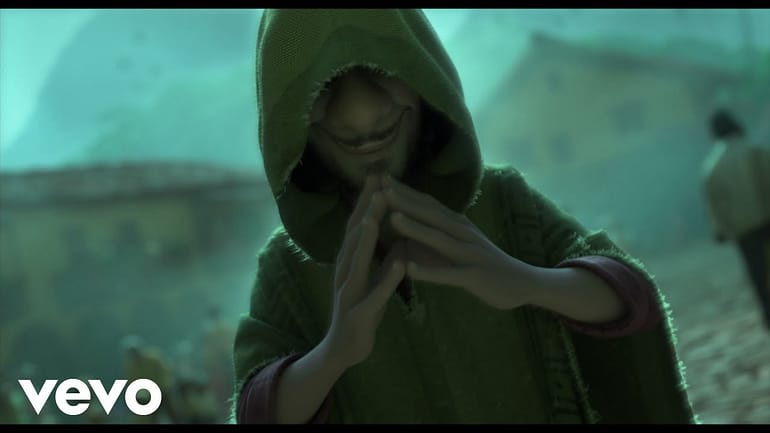
-
play_arrow
Best of Music Radio Broadcasting 70 years of Best of Music
-
 play_arrow
play_arrow
TGI4 ™ - 70s Songs Live Show 22-08-19 Live Show with FrenchieG
-
 play_arrow
play_arrow
TGI4 ™ - 70s Songs Live Show 22-08-18 Live Show with FrenchieG
You may also like
“Happy 80th Birthday Paul” Paul McCartney & Jon Bon Jovi@East Rutherford, NJ 22-06-16
Page Contents
Paul McCartney
Paul McCartney, how to describe him?
Half of the greatest songwriting team in the second half of the 20th century, yet possessing an utterly unique songwriting voice of his own; the musical arranging force behind The Beatles; a ground-breaking bassist and multi-instrumentalist who excels on more instruments than can be listed here; a solo post-Beatles career that produced hit after hit — as well as some misses — and has been sustained over an amazing 50 year period; and the wealthiest songwriter/musician in history! Paul McCartney has brought enormous joy to an unfathomably large number of people over the course of his sixty year career, and so it’s a pleasure to celebrate his extraordinary legacy with a birthday salute highlighting some of his greatest work, as well as lesser known gems.
Paul McCartney’s Musical Legacy
Paul McCartney was half of the greatest songwriting team of the 2nd half of the 20th century, a unique songwriting voice; the musical force behind The Beatles.
When Paul McCartney was with The Beatles
When Paul McCartney was a part of The Beatles, he would ask us if we’d still need him, if we’d still feed him, when he’s 64. Asked and answered: Paul has just turned 80 and there is no stopping the man who seems to be on a perpetual world tour, armed with never-flagging energy and performing one three-hour show after another. Given the sold-out nature of those concerts, it’s pretty safe to say that, yes, we still need him and we still feed him.
What’s so impressive about Sir Paul is the fact that this year marks the 52nd anniversary of the official dissolution of the Fab Four, and, physically and creatively, he’s is still going strong. Besides the concerts, not long ago he released his 25th studio album, Egypt Station, which is in addition to classical recordings he’s done as well as a number of experimental discs (most notably under the banner name The Fireman), compilations, live albums and over a hundred singles(!). Overall, it’s been a career of incredible highs with some misfires along the way, but through it all, the connection between Paul McCartney and his fans remains high.
Selected journalists express their views on Paul McCartney
To take a look back at his solo career, we’ve turned to Bill King, editor of Beatlefan magazine, the definitive news source for all things Beatles-related since 1978; veteran music journalist Paul De Noyer, who compiled his numerous in depth interviews with Paul into the book Conversations with McCartney; and Luca Perasi, who has written the most-definitive-to-date look at Paul’s recording history, Paul McCartney: Recording Sessions (1969-2013). All three have obviously been touched by the creative prowess of the “Cute Beatle.”
PAUL DU NOYER:
Paul McCartney is quite settled in his personal life
Never in all of the times that I have met him, and comparing him to other rock stars, have I gotten the impression that McCartney was a particularly unhappy or damaged individual — and lots of rock stars are. Paul is quite settled in his personal life, and yet it’s as if his personal life is really only a state of preparation for real life. For McCartney, I think, real life kicks in when he goes on stage. He was always absolutely stage-struck, as the expression is. John Lennon liked to go on stage occasionally, but it wasn’t really what he lived for. George Harrison would seek to go on stage occasionally, while Ringo Starr goes on stage now, because it’s how he makes his living. For Paul, though, going on stage appeared to be the epitome, the fundamental thing or purpose of his life.Paul’s vocation in life
He’s a lucky man, because he happened to find a vocation in life which answered the deeper psychological need of his being as well. He appears to really need to go on stage and need that affirmation, be it a tiny cavern audience in the Cavern Club in Liverpool in 1961, or the equivalent affirmation from an enormous dome in the Midwest of America in 2019. It’s what he lives for in some funny way.Paul’s attitude
A large part of Paul McCartney is still locked into show business approaches of the 1950s, by which I mean the attitude that you’re here to give the people what they want. It’s not what you want, it’s what the people want. It took him many years before he would do a wide-ranging set of Beatles, Wings and solo songs. He was terrified, really. He would play Wings stuff, because that’s what he wants to sell to the people, but he knew what they really wanted to hear were Beatles songs, which he eventually embraced in concert.Throughout the years he often said to me, “I know it seems a bit corny what I do; I go out and give people the greatest hits.” Paul has been on an almost never-ending tour in later years, but he says, “I could never do what Dylan does. Dylan will go out and play what he feels like playing that night. Even Dylan’s band doesn’t know what’s going to happen next. It’s pure improvisation.” Dylan will dip into popular bits of his repertoire, unpopular, obscure parts … it’s what he does. McCartney said to me, “I admire that Dylan does that, but I personally would never have the courage to do that myself.” McCartney is quite conventionally showbiz in some sense. He just happens to be a genius at what he does and transcends the potential triteness of show business convention.I’m speaking to you now just a few streets away from where those car journeys with McCartney and Corden came together. In fact, this evening I’ll probably go to one of the pubs where that thing was filmed. It was a wonderful reconnection between him and the streets where he grew up and the city of Liverpool, which he never actually lost connection with. He’s still a tangible presence in his home town.Paul’s music kept evolving
I think his music has kept evolving. It was only once he became a solo artist that we were beginning to evaluate 100% Paul McCartney albums. At that point, we began to say, “Well, this isn’t as good as The Beatles,” but we were trying to evaluate Paul on new terms as Paul tried to make an entire album by himself. And I have to say, he made some absolutely fantastic albums by himself.Paul McCartney’s Collaboration
Given the right collaborator, I do think his music takes on new qualities. But from what I can gauge from having spoken to him numerous times, I don’t think he’s a happy collaborator, to be honest. He and John were actually not collaborators in the general sense for many, many years. They only really collaborated, eyeball to eyeball, for four or five years in the early Beatles years. As everybody knows, with The Beatles, John and Paul, didn’t really write together very much after ’65 or so. What they did have, to their enormous benefit, is that they had to audition their songs to each other until the end of The Beatles. No Paul song went onto a Beatles album until it had passed the John Lennon test, and vice versa. The occasions in which Paul has been a collaborator have been very few and far between. And you will notice from those names, they’re pretty famous names. You have to suspect there was a commercial sensibility behind that.
He chose Elvis Costello, he chose Michael Jackson, and Stevie Wonder. Generally, they were chosen not necessarily because they were the greatest writers he could work with, they were big commercial names. Certainly, in American terms, Paul with Michael Jackson or Stevie Wonder was of enormous commercial benefit to both of them. And in Britain, Paul working with Elvis Costello was an enormous boost not to Elvis’ credibility, but to Paul McCartney’s credibility, because that’s how music was viewed in England in the 1980s and 90s. Paul was kind of the amiable old uncle, old news, whereas Elvis Costello was mostly admired as a member of the new generation of songwriters.
What I gathered from talking to both Paul and Elvis Costello is that Elvis Costello is a guy who will say no and Paul doesn’t like to be told no. He loves Paul McCartney on an artistic level and on a personal level they are very good friends, but Elvis is no pushover and he would say from time to time, “Paul, this is no good,” and Paul would push back from his own songs and say, “Elvis, this is not working, there are two chords here.” That was one of Paul’s things: Costello tries to put in too many chords and too many words, but with Paul it’s always less is more. What’s interesting is that between the two repertoires there’s a fistful of songs, many of which are not very well known. They have some really good songs, but on a level of personal songwriting chemistry, it wasn’t destined to last. They’re still very good friends, but they knew that they couldn’t really work together.
Paul’s a good man
Despite having met and talked to him a lot, when I think of Paul McCartney, I think of the music. One of the things I always concluded from him is that I think he’s a decent man. He’s a good man and I certainly enjoyed his company a lot, but at the end of the proverbial day, he’s still just an ordinary human being. He always says this and no one quite believes him that he’s just an ordinary guy. What’s extraordinary about him is this gift for music. And so if I think about Paul McCartney, it will be the songs. Go back to an early song by The Beatles like “P.S. I Love You.” My God, the intuitive genius. The lyrics are banal and obvious and so forth, but there’s the ascension of notes and the arranging of the chords and lifting of the human spirit with the melody line that rises above the ordinary Liverpool Mersey Beat. It’s magical in the sense that you can’t analyze it to the nth degree. In the end, you have to say, “Well, I don’t understand that, but I’m kind of glad that I don’t.”Radiance
The word I always think of in terms of not just Paul, but the Beatles in general, is radiance. There is something that radiates out from their music that really touches the human spirit — and not just old guys like me who heard them when I was a child and grew up with them. But for my children and my grandchildren, they’re still touched by the radiance that lifts their spirits. It may not last forever, but long may it continue.BILL KING:
Paul McCartney Touring
Every time McCartney goes out on tour, I have people ask me why he still does what he does when “he doesn’t need the money.” He’s not doing it for the money. He continues to tour because he truly loves playing his music in concert, feeding off the energy of the crowd — which explains how a 77-year-old guy manages to play a show that runs nearly three hours.I believe he’ll continue to tour as long as he’s physically able to do it. And as long as he keeps at it, we fans will keep coming. It’s a show that pleases young and old. When we attended a Paul show on the 2019 summer tour, my 34-year-old son was seeing his 14th McCartney concert, and my 25-year-old daughter was seeing her sixth. Said my daughter afterward, “I really hope I get to see him at least 10 times.” If Paul has anything to say about it, she probably will. “We’ll see you next time!” he promised the crowd at the end, like usual. I think he means it.He’s one of the world’s richest musicians
Paul always has been the Beatle most in tune (pardon the pun) with his audience. He’s one of the world’s richest musicians, but still manages to retain that everyday-guy aura. He designs his shows around what he thinks the members of the audience most want to hear, and he takes into account those casual fans who probably haven’t bought one of his albums in years. That’s why he’ll never stop doing the Beatles standards like “Hey Jude.” For those of us who were around in the ‘60s, he’s one of the two writers of the best songs in the soundtrack of our lives. And for those younger fans, like Corden, he not only represents a cool old guy doing great tunes, but a connection they feel with their parents, from whom most of them learned Paul’s music. That’s why Corden teared up, and that’s why you see so many families of multiple generations at his shows.Standing the test of time
Most of his music stands the test of time, because, with a couple of exceptions, he’s never chased trends. He does what he does. His greatest strength is his sense of melody. Some of his songs are just flat-out gorgeous, and they grab you from the first time you hear them. Just as impressive, I think, are those sneaky earworms he writes that might not knock you out on first listen, but give one of those numbers a few spins and you’ll find yourself unconsciously humming it and liking it more each time you hear it. He’s also just a fantastic and versatile musician.Collaboration with other musicians
The stuff he did with Elvis Costello and Stevie Wonder was great; the stuff with Michael Jackson, not as great. I see Eric Stewart as mainly a second banana, in the Denny Laine/Hamish Stuart mode. I’d like to have seen Paul do more with Carl Perkins, as he loves rockabilly. But some of the collaborations, including Johnny Cash and George Michael, have been weak. The thing with Kanye West was more like a guest appearance by Paul than a true collaboration. But to the larger question, yeah, I’d have loved to see him work more with artists on his level, or at least closer to it. I think he and Eric Clapton or he and Bruce Springsteen or he and Billy Joel could have done some interesting work.Paul’s Musical legacy
Paul’s musical legacy is evident in a lot of the better pop-rock around today. Those who put emphasis on melody and harmony more often than not cite him as a prime influence. As for his own stuff, a lot of the Wings material holds up surprisingly well. I think it was better than it was given credit for at the time of its release, in part because no follow-up band was going to match The Beatles. And Paul has done some absolutely amazing stuff in the past 25 years that many people don’t know about. “Somedays,” “Calico Skies,” “Too Much Rain” and “Dance Till We’re High” are just a few examples of dynamite work he’s done in the latter portion of his career.Paul’s always exploring
I’ve always admired the fact that Paul isn’t content to just do the same thing over and over again. He’s always exploring, whether it’s the avant-garde stuff of his Fireman albums, or his surprisingly good forays into classical music. Look at Egypt Station. There’s a lot of variety on that album, ranging from rock to folk to Latin to pop, with occasional touches that are reminiscent of the Fireman albums. There are a couple of numbers that don’t really go anywhere — not everything he tries really works — but I like the adventurousness of that album and I think it speaks well of McCartney as an artist.LUCA PERASI:
Paul McCartney needs the audience
He’s a natural performer. It’s interesting, because we have two different McCartneys. One is in the studio and the other one is on the stage, and each one of us can choose the one we prefer best. He enjoys being onstage, because he’s a ham and a great performer and one of the greatest voices in rock and pop history. So he needs the audience. One of the reasons he was so desperate after the breakup of The Beatles was the fact that, of course, he was breaking up with his mates, but the other was, “What will I do without success? Without audiences? Without being connected to my audience?” So he needs this and I can understand it. It has to be a great feeling to play for thousands of people, and the energy that comes from the audience is something really incredible for him.Concerts
At this point, people enjoy being at his concerts and just seeing him. It’s an event in itself, so it’s not like, yes, the concert is great and we all know the songs, and I’ve seen him 13 times, but you know what? If you say to me, “Tomorrow there’s another concert,” I would go. Definitely. No matter the set list and songs he’s playing, because I want to see him. Many people want to see Paul in person and it’s an experience regardless of which songs he chooses at this point.No one can compare
Talent is the first reason for that connection. He has written, really, the history of pop in the lives of many people. Even in my case, I will turn 50 this year, I didn’t live with The Beatles, because I wasn’t born yet. But I have a lot of memories, and I think the connection that is established between music memories and life is powerful. I love many other artists, but when it comes to Paul McCartney, really, no one can compare. It’s like living in the same era with Mozart or Beethoven or other classical giants.Paul chose a different path
He likes pop music, and he likes to do different things, because he has done a lot of classical material and experimental music. He likes to play with different genres of music, but mainly he’s a pop composer who doesn’t see music probably as an evolution of his style. He likes to compose good pop songs. In that respect, I don’t think we can talk about an evolution. How many people can count on a creative run like he’s had? He is really blessed. After The Beatles, it was a different journey. He was brave and courageous because it wasn’t easy to follow The Beatles. And I think he succeeded in doing this, because he chose a different path. That’s the most important thing he did.It’s not always easy for Paul
Obviously he is perfectly capable of doing everything on his own, and we’ve got incredible examples of albums where he played all the instruments himself. But, on the other side, he needs someone else. It’s difficult for him, because he always says that after John Lennon, who is at that same level? It’s near impossible, but he needs someone. I think in particular Elvis Costello was the best collaborator yet, and it was really kind of a shame that they didn’t do something more together. It was a great collaboration, the songs and the lyrics, in particular, were interesting and kind of different compared to the usual ones. Elvis added something to his music. I think Paul was happy to work with Elvis, but it was not easy for him, because he has admitted that Elvis is a very straight-forward man. If he has to tell you something, he tells you. Paul knows that at some point he needs someone who says, “No,” and I would have loved to have seen him having a little bit more courage during his career by working with people similar to Elvis Costello who says, “No, Paul, we don’t do this. Let’s try the other way.” Obviously this is not to say he’s not capable of judging his own material, but it’s not always easy.He’s always composing
One of the interesting things about him is that he’s always composing. Why I set up the book the way I did based on recordings instead of publishing dates is that we can see that he’s composing a lot of songs and he’s got no time to release many of them. So you find that there are songs he composes in say, 1970, but he doesn’t get around to releasing for 10 or 15 years. His creative flow is incredible, because we can call it his job, right, because it’s the truth. To compose songs, you have to be disciplined. You have to sit down, grab your guitar or piano and try. I don’t think it’s true that inspiration comes from nowhere. It can be, but for most of the time it’s something that you are applying yourself to. But his creative flow continues and it’s one of the most incredible things about him. If you go through the book, like I said, you can see a lot of cases where the song is composed and released in different eras. So what you have in an artist like Paul McCartney is someone who composes decade after decade and never stops.
Paul McCartney Has As Much a Need For His Concerts As His Fans
There are certain constants in the universe, and one is that if he has his way, Paul McCartney will be performing a concert somewhere around the world at any given time. The impression one gets is that it’s his lifeblood, and something the fans never tire of.
Selected comments from the video extract on Paul McCartney’s 80th birthday concert
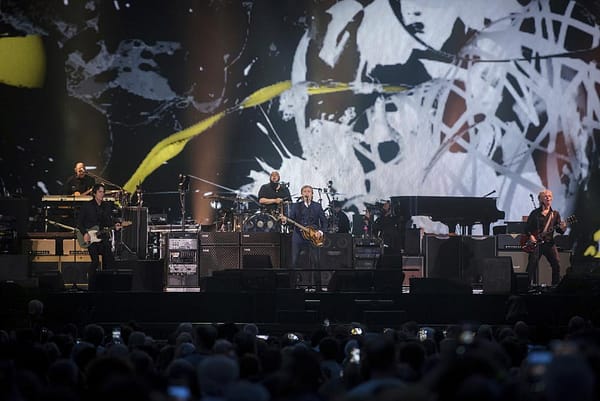
Carmen musiclover.053
Paul is still alive and kicking,so special ,the playing and singing is still wonderful . I wish he would come to western Europ again too. A Paul gig is always so beautiful and awesome. Happy birthday dearest Paul and many more birthdays to come.
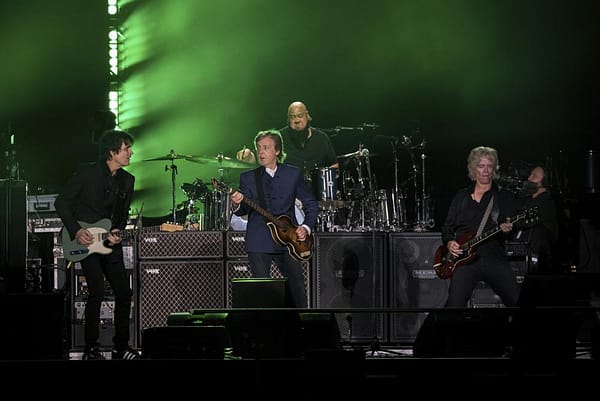
Jennifer Angelina Petro
I was there last night–such a class act–so generous, amazing, and, at 80, he can rock-rings around many-a younger performer.
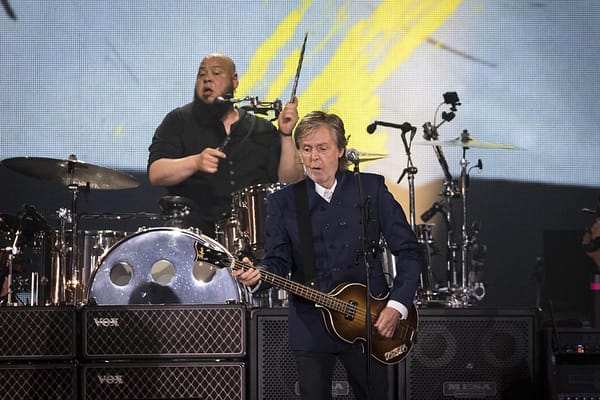
Barbara Burke
Paul is the greatest living musician, in my estimation. I was there last night, and it was three hours of perfection. One of the best concerts of my life, out of thousands I’ve attended. I heard songs that I never thought I’d hear performed by a Beatle in my lifetime. He has made so many of us – millions- so happy with his music, humor, and ethics over the course of his lifetime. Thank you for the music, and may you rock for years to come, Sir Paul! ❤️
See also this other post on Paul McCartneys 80th Birthday
Buy Paul McCartney CDs on Amazon
You may also like
© 2025 Best of Music Radio - Mauritius
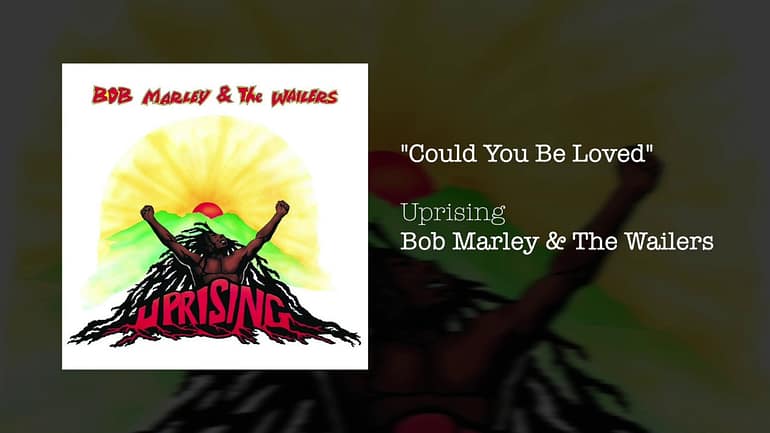

Post comments (0)